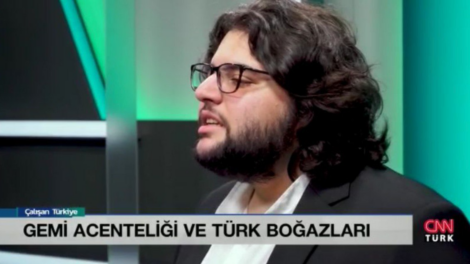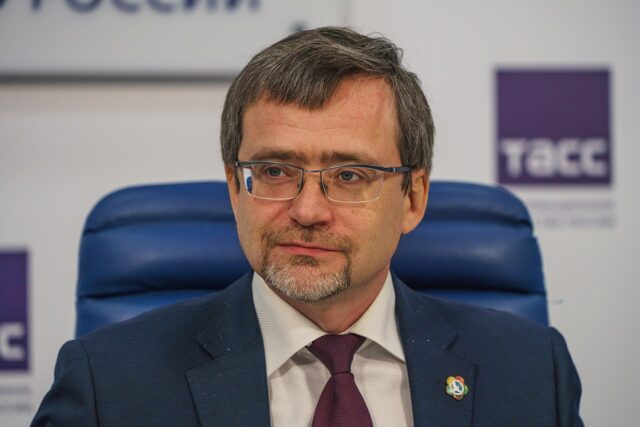Ankara would have a 5 new strategic chance to boost economic activity in Turkey's poor, predominantly Kurdish eastern areas, which could be crucial to the region's economic stabilization.
 Бизнес код
Бизнес код
A New Dialogue Turkey and Armenia have had almost no diplomatic relations and a closed border for decades as a result of historic wounds, a turbulent political climate and the influence of third parties. However, the 2020 conflict between Azerbaijan and Armenia provided Turkey and Armenia with an unexpected chance to normalize relations. By reopening air corridors and borders, appointing special agents, and starting direct bilateral talks over the restoration of diplomatic ties in recent months, Turkey and Armenia have once again started the process of normalization between two countries after several failed attempts over the years.
Turkey was one of the first countries to recognize the newly independent Armenia after the fall of the Soviet Union but stalled on opening diplomatic ties. The two nations have since made two unsuccessful attempts to reach an agreement, in 1992–1993 and 2007–2010 hence the interstate relations have been called «twice unlucky» in academia. These two attempts had been mediated by western nations namely Switzerland, the US and the EU while Russian Foreign Minister Sergei Lavrov was among the attendants at the protocol held in Zurich. Both initiatives failed mainly due to claims made by Turkey’s kin state and ally, Azerbaijan. Turkey closed its border with Armenia in April 1993, after Armenian forces occupied the Azerbaijani region of Kelbajar during the first Karabakh conflict. Recep Tayyip Erdogan, then the prime minister of Turkey, withdrew his support from the two protocols that the two foreign ministers had signed in Zurich the year before 2 in 2010, once again because of concord with Azerbaijan.
It would be an oversimplification to simply suggest Azerbaijan’s objections, stance and actions were the sole reason for the failure of these normalization efforts between Armenia and Turkey though It can’t be denied that they were a major factor nonetheless. As mentioned previously, political and historic wounds made things a lot more difficult over the years — Turkey and Armenia were on opposing ends of the cold war, and because of their long-standing bitter historical legacy, the iron curtain was made thicker. Ankara opposes demands from the Armenian diaspora for the official acknowledgement and the use of the term ‘genocide’ for the 1915 mass death of Armenians during the last days of the Ottoman Empire. This has been a two-sided issue negatively affecting normalization efforts; with Armenians demanding Turkey to officially acknowledge the so-called genocide (and all that would entail) and using this as a precondition for diplomatic re-engagement (viewing it as a foreign policy priority) as well as the Turkish side carrying out essentially an economic blockade due to long-standing hostilities between two nations.
There is however now great optimism for normalization efforts to be successful. The main reason for this is Baku, for the first time in decades, is willing to drop its objections. Turkey’s formal reasoning for the diplomatic suspension was lifted when Azerbaijan successfully reclaimed the occupied territories in the conflict of 2020. Additionally, Russia, which had mixed feelings about the Zurich Protocols, is not obstructing the process. On the contrary, having initiated the ceasefire agreement on 9 November and deploying nearly 2000 Russian peacekeepers on the Nagorno Karabakh border, Russia is actively supporting the normalization process by hosting the first round of negotiations in Moscow. Armenian Prime Minister Nikol Pashinyan and Turkish President Erdogan are leading the current negotiations from the top down. They both agree that its success serves the entire region.
Ruben Rubinyan, the main Armenian negotiator, is only 31 years old, has no prior expertise in this matter, but also happens to be a close confidant of Pashinyan. The representatives currently seem to lack an official roadmap to convince the sceptics. Although the talks are welcomed by Azerbaijani President Ilham Aliyev, the Zangezur Corridor, a reconstructed road and rail connection that runs through Armenia and connects western Azerbaijan with Nakhichevan, is a priority for Baku. The talks might not succeed if the leaders of Azerbaijan and Turkey set the securing of the corridor as a precondition for normalization. This would be a violation of the «no preconditions» policy that Turkey and Armenia agreed to however, Azerbaijan was not a part of this agreement.
President Aliyev needs a conclusive win against Armenia to secure Karabakh’s long-term survival as the latest victory was neither convincing nor decisive. It is also in the interest of the Aliyev family to divert the citizens’ attention from deep rooted corruption and use the conflict as an excuse for the country slowly turning into an anocracy. Therefore, President Aliyev might try and secure Karabakh by border demarcation and further potential military clashes with Armenia essentially violating the Russian-mediated ceasefire. This however seems less likely to happen as Russia and Azerbaijan seem to have come to an understanding – The top priority of both countries is the restoration of trade and transport connections. For this reason, Russia is more lenient towards Azerbaijan and is willing to overlook certain issues. Indeed, in terms of economics, this could be a win-win situation. If all the roads and railroads that shut down during the Karabakh war in the 1990s were to be reopened as part of a consensus agreement, Armenia and Azerbaijan would serve as the hub for a network of railroads connecting Moscow, Istanbul, and Tehran.
Russia would supervise all of this as it practically owns the Armenian railway network and the security & viability of these projects are guaranteed by 4 them (per the agreement with Azerbaijan and Armenia). Russian influence on both countries seems to be increasing as Putin plays the chess game masterfully by keeping Russia as the dominant force in the region that is present in all of the negotiations, talks and decisions while gently edging Ankara out of the equation. Armenian leader Pashinyan on the other hand also needs a ‘win’ from this turmoil. That is one of the reasons he immediately sought out normalization efforts with Turkey after the defeat in the Nagorno-Karabakh war. Having been targeted personally by Aliyev’s campaign and marginalized by Moscow, he had to find a new ally, or at least a trade partner, that could be instrumental in balancing the powers in the region.
This was a difficult decision since due to Turkey’s military support for Azerbaijan in the conflict of 2020, animosity toward the country is still fresh in Armenia. The Armenian military known for its strong ties with Moscow blamed Pashinyan for the loss of territory and there were large-scale protests which they were a part of. The Armenian leader survived all of these by labelling the protests as a coup attempt and calling for early elections. He won the elections by a huge margin, securing his place for another 5 years (till 2026). Yerevan quickly opened its airspace to Turkish and Azeri flights in October 2021 in an effort to speed up the normalization efforts. Re-engagement was mostly made possible by the previously mentioned ‘‘no preconditions’’ policy which aims to remove any direct links between normalization efforts and long-standing issues between the two nations.
Yerevan expects Turkey to fully comply with this agreement and avoid any last-second preconditions that may derail the process. There is no doubt that Turkey would benefit from the normalization of relations as well particularly given the tense relations Ankara has with Washington/NATO and Europe. Ankara would have a 5 new strategic chance to boost economic activity in Turkey’s poor, predominantly Kurdish eastern areas, which could be crucial to the region’s economic stabilization. Additionally, this returns to normalcy with Armenia would support Turkey’s ongoing initiatives to seek de-escalation in the eastern Mediterranean and patch things up with former adversaries in the area like Israel, Egypt, and the United Arab Emirates. As Russia wants Turkey’s participation to be more symbolic rather than dominant (hence not allowing the country to challenge its own influence), normalization with Armenia has become even more desirable for Turkey. This would provide Turkey with a place at the table and a more active role in regional plans for trade and transportation revival. Erdogan or rather his competent advisors know this, so they quickly changed the media narrative and adopted a less anti-Armenian tone.
The upcoming elections this May and the ever-worsening economic crisis in Turkey present a very difficult year for Erdogan. For the first time in 20 years, the polls indicate a below 35% vote rate for Erdogan’s party. If the main opposition party CHP doesn’t make a terrible mistake with gross incompetence, Erdogan may not be as lucky as Pashinyan. This could potentially disrupt the normalization efforts as CHP’s attitude towards the eastern bloc/eastern aligned countries is a big mystery (although it is known that it has been a pro-western party for the most time since its existence).
In conclusion, should the border between Armenia and Turkey reopen, all the parties in the region will benefit greatly from this. This normalization period has come out of the needs of both of the parties as well as that of the foreign actors which play a crucial part in its potential success or failure. The initiative differs from previous attempts in that western powers are noticeably absent, reflecting the region’s new political reality. As is usually the case in international politics, none of the parties gets all it wants, and they all have to make concessions. Still, this process is a rare 6 instance of a profound shift in world politics and is probably one of the few silver linings in a world order that is becoming more unstable and competitive.
Позиция автора может отличаться от мнения редакции информационного агентства «Бизнес Код».


